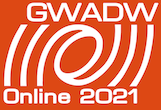Speaker
Description
Wavefront sensors are essential devices in gravitational wave detectors since they are an indispensable tool for the control of the interferometer and a valuable help for the optimisation of the detector.
Next-generation gravitational wave detectors will introduce some fundamental changes that will influence the performance of these sensors (e.g. the use of laser with different wavelength) and requires the development of novel, optimised, sensors. At Nikhef we are developing and characterising new InGaAs/InP photodiodes. We are currently focusing on low-noise large-area quadrant photodiodes for LISA. However, this work will also help us to gain experience in designing new sensors and in characterising photodetectors for future earth-based gravitational wave detectors, like for example ET. We will discuss shortly a strategy towards new sensors for longer wavelengths (1.5 and 2 micron): extended InGaAs, quantum dots, etc.
In parallel we are optimising the Nikhef Phase Cameras, wavefront sensors currently in use at Virgo to read phase and mode content of the beam. They can be used to implement feedback to correct the thermal effects that create aberrations in the mirrors. However, we are not yet using Phase Cameras to their full potential. So far only the intensity profile is studied to determine the the Higher-Order-Mode content, and we like to discuss how to utilise the phase information.

